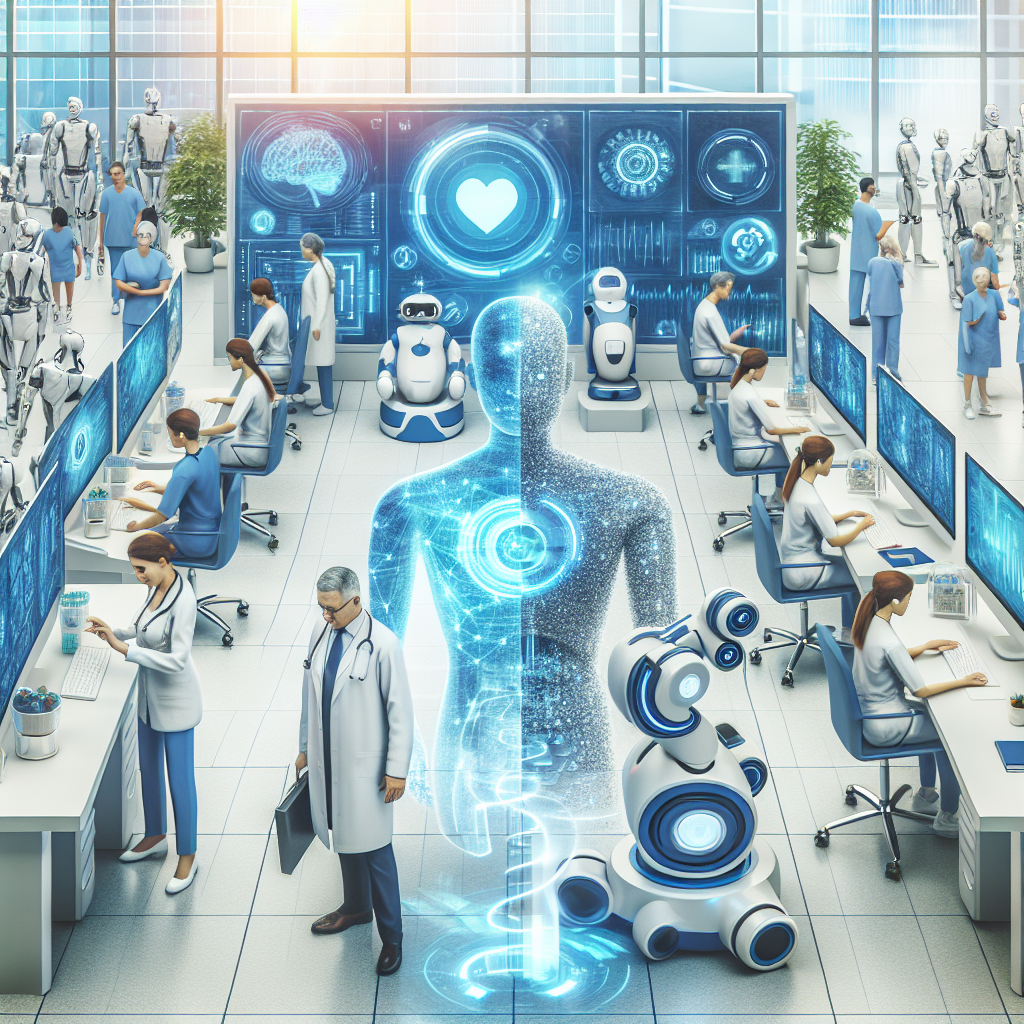AI and Machine Learning: Transforming the Healthcare Industry
In recent years, the healthcare industry has undergone a significant transformation with the integration of artificial intelligence (AI) and machine learning technologies. These cutting-edge tools have revolutionized the way healthcare providers deliver care, diagnose diseases, and manage patient data. The impact of AI and machine learning in healthcare is profound, offering numerous benefits such as improved diagnostics, personalized treatment plans, and enhanced patient outcomes. In this article, we will explore how these technologies are reshaping the healthcare industry and discuss the potential opportunities and challenges they present.
AI and Machine Learning in Healthcare
AI refers to the simulation of human intelligence processes by machines, whereas machine learning is a subset of AI that involves training machines to learn from data and make predictions or decisions without being explicitly programmed. In the healthcare sector, these technologies have been leveraged to analyze vast amounts of medical data, identify patterns, and generate insights that can improve patient care.
One of the key applications of AI and machine learning in healthcare is medical imaging. These technologies can analyze medical images, such as X-rays, MRIs, and CT scans, to detect abnormalities and assist radiologists in making accurate diagnoses. For example, a machine learning algorithm developed by Google was found to be as effective as radiologists in detecting breast cancer from mammograms. This highlights the potential of AI and machine learning to enhance diagnostic accuracy and speed up the process of detecting diseases.
Another area where AI and machine learning are making a significant impact is in personalized medicine. By analyzing a patient’s genetic makeup, medical history, and lifestyle factors, AI algorithms can help healthcare providers develop personalized treatment plans that are tailored to the individual’s unique needs. This approach can lead to more effective treatments, reduced side effects, and improved patient outcomes.
In addition, AI and machine learning are being used to predict and prevent diseases. By analyzing large datasets of patient information, these technologies can identify risk factors for certain diseases and predict the likelihood of an individual developing a particular condition. This predictive modeling can help healthcare providers intervene early to prevent the onset of diseases, leading to better health outcomes and reduced healthcare costs.
Challenges and Opportunities
While the potential benefits of AI and machine learning in healthcare are vast, there are also challenges that need to be addressed to fully realize their potential. One of the main challenges is the need for high-quality data. AI algorithms rely on large amounts of data to make accurate predictions, and ensuring the quality and accuracy of this data is crucial for the success of these technologies. Healthcare providers must invest in data collection and management systems to ensure that the data used by AI algorithms is reliable and up-to-date.
Another challenge is the integration of AI technologies into existing healthcare systems. Many healthcare organizations lack the infrastructure and expertise necessary to implement AI and machine learning solutions effectively. This requires investment in training healthcare staff, updating IT systems, and developing partnerships with technology companies to successfully integrate these technologies into clinical practice.
Despite these challenges, the opportunities presented by AI and machine learning in healthcare are immense. These technologies have the potential to revolutionize the way healthcare is delivered, making it more personalized, efficient, and effective. By harnessing the power of AI and machine learning, healthcare providers can improve patient outcomes, reduce healthcare costs, and enhance the overall quality of care.
FAQs
Q: How are AI and machine learning being used in healthcare today?
A: AI and machine learning are being used in healthcare for a variety of applications, including medical imaging, personalized medicine, predictive analytics, and robotic surgery. These technologies are helping healthcare providers improve diagnostic accuracy, develop personalized treatment plans, and predict and prevent diseases.
Q: What are some of the benefits of using AI and machine learning in healthcare?
A: Some of the benefits of using AI and machine learning in healthcare include improved diagnostic accuracy, personalized treatment plans, predictive analytics, and enhanced patient outcomes. These technologies have the potential to revolutionize the way healthcare is delivered, making it more efficient, effective, and patient-centered.
Q: What are some of the challenges of implementing AI and machine learning in healthcare?
A: Some of the challenges of implementing AI and machine learning in healthcare include the need for high-quality data, the integration of these technologies into existing healthcare systems, and the lack of expertise and infrastructure in many healthcare organizations. Addressing these challenges will be crucial for the successful implementation of AI and machine learning in healthcare.
Q: How can healthcare providers prepare for the integration of AI and machine learning technologies?
A: Healthcare providers can prepare for the integration of AI and machine learning technologies by investing in data collection and management systems, training healthcare staff, updating IT systems, and developing partnerships with technology companies. By taking these steps, healthcare providers can ensure the successful implementation of AI and machine learning in clinical practice.

